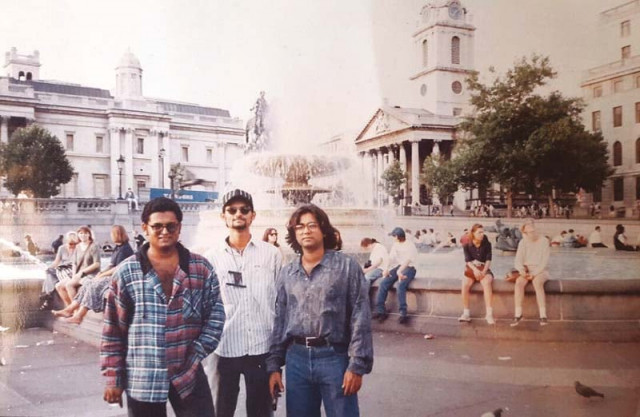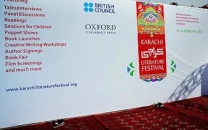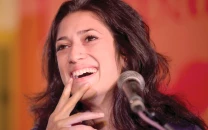Lucky Ali – the forgotten brother
Being born in the house of Sajjad Ali, Waqar Ali and making a name in music was never going to be easy

Waqar Ali, Lucky Ali and Sajjad Ali pictured during a UK tour in 1995. PHOTOS COURTESY: WAQAR ALI
Singer-songwriter Lucky Ali is one such individual. Being born in the household of giants such as Sajjad Ali and Waqar Ali and making a name for himself in the family trade was never going to be easy. And it’s not that Lucky never tried. He did and even succeeded to a certain extent. Remember the album Chooriyan and the popular song Teri Chooriyon Ki Awaaz Sun Ke? However, as luck would have it, within 12 months of making it mainstream at home, Lucky had to leave for the US for greener pastures.
To the onlooker it might appear that the move was sensible because Lucky never made the cut the way his accomplished siblings did. However, in his view, Lucky was never competing with anyone in the first place.
Sajjad Ali draws upon Ghalib to look at unfulfilling relationships
“All three of us used to be, and still are, very close,” he tells The Express Tribune. “I was never interested in fame or fortune, because both of my brothers were extremely popular so for me it was nothing big even if I became successful.”
In the US, trading careers and an entire lifestyle bore little fruit for him. With the market for cellular phones booming at that time, Lucky thought it would be wise to set up a mobile phone retailing business. “That is where it all went wrong for me,” he recalls, adding, “One of my consignments arrived completely defected because of which I faced a loss of nearly $30,000.”

Lucky returned to Pakistan in 2014
Returning to the original question, he footnotes, “I was actually never serious about a career in music in the first place. It was also not the best of times for the industry. Babia came out in 1992-93. Everything was moving forward. Pakistan had just won a world cup. Benazir [Bhutto] had come into power…” Lucky says by the time he entered the field, it was already going south.
Would love to collaborate with Sajjad Ali: Zoe Viccaji
After losing his life savings, Lucky still didn’t give up. He continued to work freelance as a graphic designer and video editor, hoping to put together enough dollar bills to bring his family to America. He even worked with a Pakistan television channel in New York for a bit. “After a while I thought enough is enough. It had been very long since I had last seen my family so I thought it’s better to move back,” he adds. “The music industry was also coming back on its feet and films were being made. Things had begun finally looking better.”
Throughout the conversation, Lucky makes several references to his quest for “zehni sukoon” (mental peace). “I was unable to escape my responsibilities and was stuck in my own problems. I had to take care of my family and work.”
'What Pakistan needs now is film music'
In 2013-2014, he came back to Karachi and joined a television channel as a regular performer to oil the machine that had gathered rust in all these years. “Right now, there is only one thing on my mind which is to set up my own studio. Waqar bhai is helping me with a lot of the technical stuff and equipment,” he says.
While the years may have caught up with him as his receding hairline and grey-ish stubble may suggest, the singer feels he still has it. “Horses and men never grow old,” he chuckles.
Fully aware of the fact that his name will always be associated with that of his brothers, he is making his choices with care. “I need to think of Waqar bhai and Sajjad bhai’s legacy otherwise it is not difficult for me to release a song tomorrow,” he adds.
With a long road ahead of him, one wonders whether he has any qualms about his career decisions. “Not at all,” is the answer.
Published in The Express Tribune, May 16th, 2016.
Like Life & Style on Facebook, follow @ETLifeandStyle on Twitter for the latest in fashion, gossip and entertainment.



















COMMENTS
Comments are moderated and generally will be posted if they are on-topic and not abusive.
For more information, please see our Comments FAQ